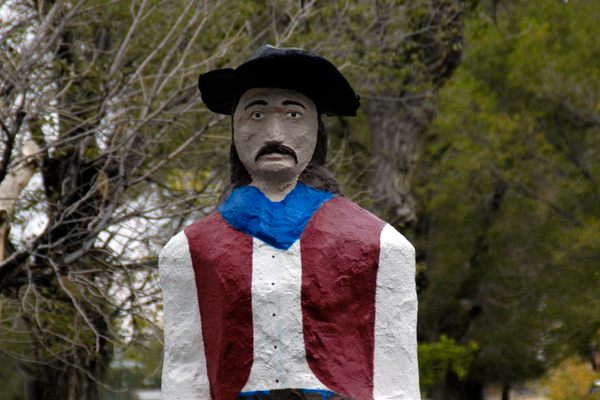Western movies always tell tales of landlords with vast tracts of mountains and ranges. Few of these fictional characters can compare with the real-life holding of Lucien Bonaparte Maxwell, who once owned more than 2 million acres of land in northeast New Mexico.
Maxwell came from humble beginnings in Illinois, growing up in a fur trading family and eventually making his way west. He married the daughter of rancher Charles Beaubien and soon bought all of the land owned by Beaubien and his business partner, Guadalupe Miranda. This land, then known as the Beaubien-Miranda Land Grant, was renamed the Maxwell Land Grant and was centered around the town of Cimarron.
The land has gone through various phases of mining, logging, railroading, and ranching, and today has been divided up into ranches and public land, most notably Philmont Scout Ranch, one of the largest youth camps in the world. The land was also central to the Colfax County War, a fight between Maxwell’s successors and the settlers living on the land which was eventually decided by the National Guard and the Supreme Court.
One might expect an equally grand monument to such a grand individual, but instead, Maxwell’s statue resembles a papier-mâché project. His hands are off-center, his legs are tiny, and his facial expression is cartoonish. The statue was created in the mid-1930s by local Italian immigrant Domenico Poglianich, who lived in a nearby cave. “Professor Dom” created other works for the town, but Maxwell’s statue is the only one that remains.
Today, the statue is a kitschy but endearing piece of folk art in the center of a true Wild West frontier town. To this day, locals care for maintenance, and it sits prominently in the town plaza, surrounded by various restaurants and businesses.

